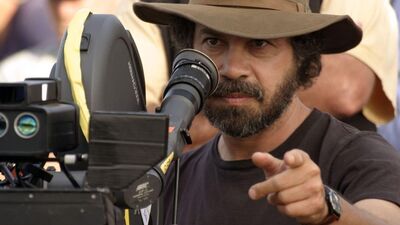In Hits, Flops, and Other Illusions: My Fortysomething Years in Hollywood, out on Tuesday, the director of “Glory,” “Legends of the Fall,” “The Last Samurai” and “Blood Diamond” speaks candidly about the myriad challenges involved in making films. True to its title, the memoir finds Zwick examining both his triumphs and failures, offering lessons learned and colorful tales about working in the creative trenches. (Lest anyone forget, he was also one of the forces behind acclaimed TV series such as “thirtysomething,” “My So-Called Life” and “Once and Again.”) Hits, Flops, and Other Illusions is smart and funny, with Zwick heaping praise on stars like Denzel Washington, Tom Cruise and Leonardo DiCaprio while eviscerating Harvey Weinstein, who made his life hell during “Shakespeare in Love.” (Zwick backed the project in its early days, long before Julia Roberts was briefly attached — she was convinced she could talk Daniel Day-Lewis into starring in it with her. Zwick eventually won an Oscar as one of its producers, but, well, that’s a complicated story, and he gets into it in beautiful detail in the book.)
I spoke to Zwick last week over Zoom from Chicago, and he was just as engaging and honest as he is in Hits, Flops, and Other Illusions. He discussed what’s daunting about writing a book when you’re used to putting your thoughts in your characters’ mouths — and how he feels about the current debate swirling around the appropriateness of telling other cultures’ stories, something he has done consistently in his career. Zwick also spent a little time pondering the prospect that he may never direct again.
In Hits, Flops, and Other Illusions, you write compellingly about all the hurdles a director faces when trying to make a movie: budget issues, studio demands, fickle actors. Was it liberating — or daunting — to write your first book, where those obstacles aren’t in your way and the connection to an audience is more direct and intimate?
When one writes a movie, there’s so many aspects of it, but you are within a form. It’s like a sonnet or a villanelle — it’s this rhyme scheme, A-B A-B, and the scansion is such that you are writing within a prescribed form. And that’s comforting — it’s reassuring because it’s the known world — but it’s also limiting. And not only that, but you’re in a medium that is an art dictated by commerce, which is to say that it’s going to be scrutinized and it’s going to be commented on, and there’ll be those pressures put upon it that are both artistic and commercial. It will go through many forms — it’ll go through the development process, it’ll go through the preview process, and it’ll go through the release — and they all have their own horrors.

